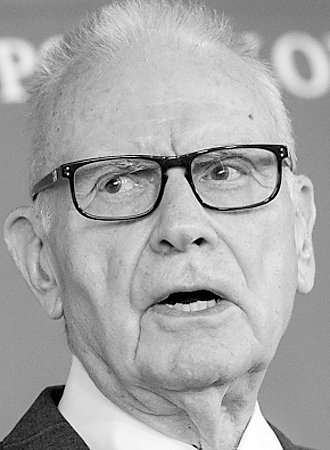Support the Timberjay by making a donation.
The U.S. is no longer the dominant superpower
It was an article of faith, through most of my life, that the United States was the world’s dominant power. We had the most powerful military, the biggest and most vibrant economy and the most …
This item is available in full to subscribers.
Attention subscribers
To continue reading, you will need to either log in to your subscriber account, below, or purchase a new subscription.
Please log in to continue |
The U.S. is no longer the dominant superpower
It was an article of faith, through most of my life, that the United States was the world’s dominant power. We had the most powerful military, the biggest and most vibrant economy and the most influential culture. For better or worse, we were the envy of the world.
If we’re honest, we have to admit that’s no longer the case. It’s not that America has grown weak. Rather, the world has changed in multiple ways. The rise of China, the unification of Europe, the changing global economy and other factors have reshaped the dynamics of power.
This has implications for American foreign policy. To protect our national interests and to be a positive force in the world, we’ll have to make wise decisions and make the most of alliances.
Historians often mark the rise of the U.S. as a world power to the Spanish-American War of 1898 and, later, to America’s entry in World War I. We became dominant with World War II, which left much of Europe and Asia in ruins and left the United States stronger than ever. Publisher Henry Luce’s claim that the war ushered in an American Century was widely accepted.
Those of us who are over 50 came of age in a bipolar world. On one side were the United States and its allies; on the other were the Soviet Union and China. Other nations aligned with one side or the other. The Cold War was contentious, but there was no doubt America was the greatest power.
With the collapse of the Soviet Union in 1991, the world became unipolar, with one superpower. Madeleine Albright, secretary of state in the Clinton administration, referred to the United States as the indispensable nation, a characterization that few could dispute.
Today we live in “a ‘G-Zero’ world, a nonpolar world without global leaders,” in the words of political scientist and author Ian Bremmer. How did this happen?
The rapid rise of China was certainly a factor. Starting in the late 1970s, China adopted economic reforms and began prioritizing trade. The results were remarkable: hundreds of millions of Chinese were lifted out of extreme poverty. Under Xi Jinping, an aggressive China has promoted its model of state-controlled capitalism and expanded its influence in Asia and Africa.
The creation of the European Union in 1993 consolidated Europe’s economic and political power. With 27 member states, the EU is aligned with the United States but provides an alternative to American power. India, Brazil, Saudi Arabia and other nations have grown their influence. Russia is no superpower; but, under Vladimir Putin, it has threatened and bullied its neighbors. It has a vast nuclear arsenal, and its war in Ukraine looks like an attempt to regain some of the fearsome power that it lost with the breakup of the Soviet Union.
Finally, many Americans became uncomfortable with the superpower role, arguably starting with the failures of the Vietnam War. We grew weary of never-ending wars in Iraq and Afghanistan and skeptical of our ability to shape world events. Donald Trump’s “America First” slogan echoes the isolationists who opposed U.S. entry in World War II.
It’s true that, by most measures, the United States remains the most powerful nation. We still have the largest economy, the most effective military and the greatest cultural influence. But we may never again have the kind of dominance we once had. We ought not assume that we will.
Regardless, we should do what we can – as citizens and as voters – to keep America strong. We should encourage our leaders to engage with the world, to support and lead military and economic alliances, and to contribute to the world’s peace and prosperity. We may not be quite the dominant superpower we once were, but we can and should be a formidable force for good.






